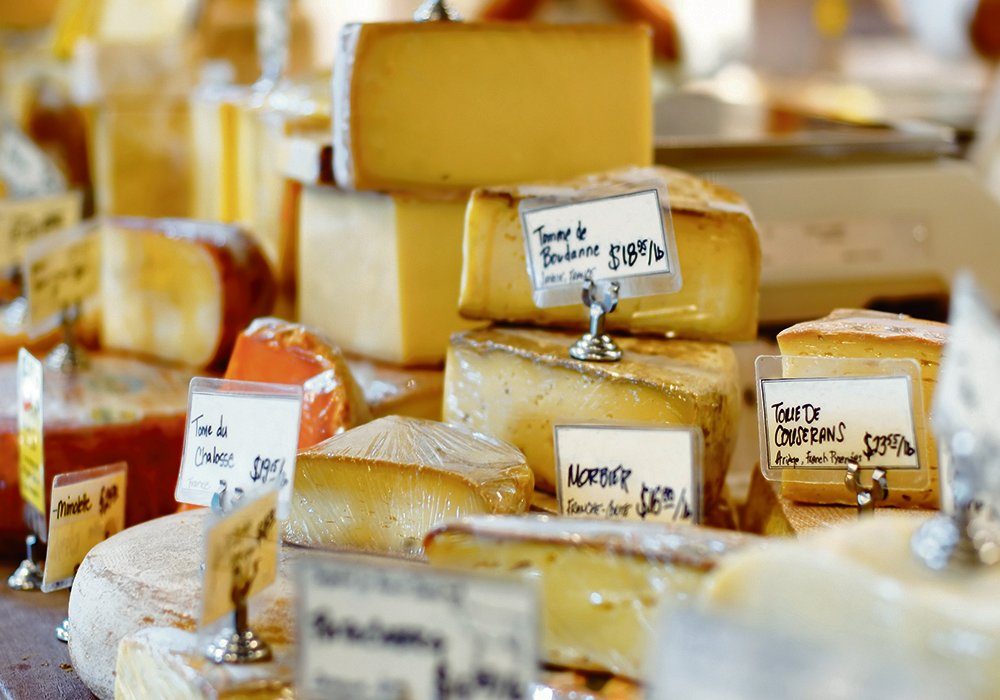‘Geographical indications’ can have mixed results

Practice claims that certain products should only be allowed to have certain names if they come from a specified region
European Union attempts to protect traditional products, squeeze competitors out of the market and boost export sales with product name controls both do and don’t appear to be working, new academic research suggests.
The way “geographical indications” (GIs) are defined in trade agreements and administered post-agreement have a big impact.
“… there are significant effects on listed GI exports for FTAs (free trade agreements) that stipulate mandatory ex officio protection, that is, administrative checks rather than (the) only legal recourse for GI producers to sue infringing parties,” say Danielle Curzi of the University of Milan and Martijn Huysmans of Utrecht University in a May 7 article in the American Journal of Agricultural Economics.
That means where regulators actively prevent local competitors from using GI-designated names, those EU imports with GI names in popular categories appear to benefit.
However, that is mostly true with already-established product names that have strong customer loyalty in that specific market, rather than all products with GI names.
“… there are significant positive effects for products of perceived high quality in destination countries prior to the FTA. This is consistent with well-established original GI products displacing local or third-country imitations after those are forced to rename,” Curzi and Huysmans write.
GIs have become a major focus for European Union negotiators in recent trade deals and negotiations. They claim that certain products that have originated in Europe should only be allowed to have certain names if they come from a specified region. That includes Feta cheese, Parmigiano cheese, as well as numerous other cheeses, wines, and foods.
That means if a processor is based outside a designated region, it cannot call its product by a specially protected name, even if the product is identical.
In the Canada-EU CETA deal, Canada accepted GIs for many European-based foods, although it won an exception for existing Canadian feta cheese makers.
The United States-EU free trade talks stalled years ago, with EU insistence on GIs central to U.S. concerns that scuppered progress.
The EU has made GIs central to its other ongoing negotiations.
Curzi and Huysmans look at worldwide export sales data as well as previous academic studies and attempt to winkle out the impact of GI recognitions from the overall impact of an FTA on sales of GI-designated cheeses.
They find that GIs don’t appear to have a noticeable independent effect on the sales of GI-labelled goods that are not generally known or widely consumed in the specific market for which an FTA is created.
However, for those items that already have a major presence, and are already seen as a premium product, banning local competitors from using the commonly known name appears to offer an advantage. The existing designation, before any enforcement or bans, seems to signal premium quality to consumers.
“Our main results suggest that GI products listed in bilateral FTA provisions do not show any significant additional exports purely from the legal protection of being listed. Rather, countries’ GI endowments, whether protected or not, are associated to higher export performance.”
The opposition in much of the world for GI designations comes from the use of many terms that are considered generic product names, rather than descriptions of specific locales. Outside of Europe, feta cheese is seen as a specific type of cheese in terms of its eating qualities, rather than the specific location in which it was manufactured. European processing, farming and marketing interests view the terms as suggesting a specific geographical origin.
Curzi and Huysmans suggest EU producers and exporters consider trying to boost the profile of the many lesser-known GI-designated products that currently don’t seem to benefit much in many foreign markets from their designation.
Non-EU governments that don’t currently produce some EU GI-protected products might not mind conceding those designations in those products.
It’s the ones already being produced and in competition with imported EU products where the friction and resistance is expected, they write.
Source: producer.com

